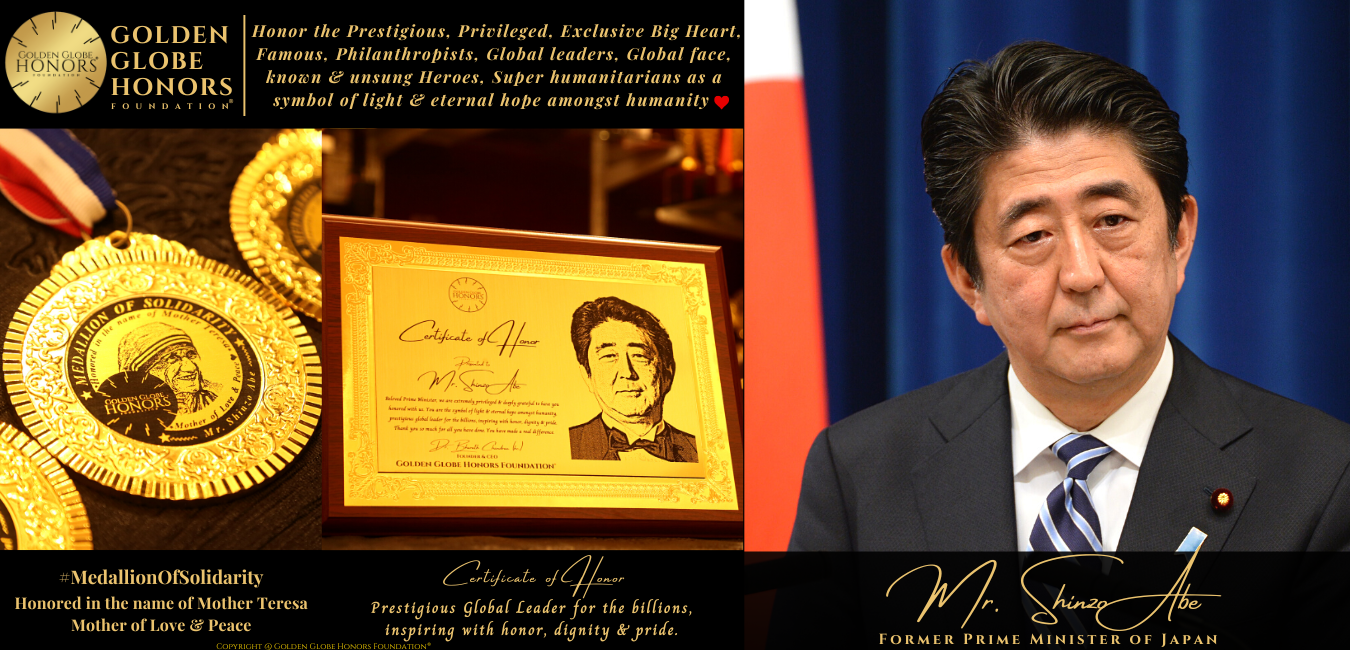Shinzo Abe

SHINZO ABE is a Japanese politician who served as Prime Minister of Japan and President of the Liberal Democratic Party (LDP) from 2006 to 2007 and again from 2012 to 2020.
Shinzo Abe was the longest-serving prime minister in Japanese history. Abe also served as Chief Cabinet Secretary from 2005 to 2006 and was briefly Leader of the Opposition in 2012. Abe was elected to the House of Representatives in the 1993 election. He was appointed Chief Cabinet Secretary by Prime Minister Junichiro Koizumi in September 2005, before going on to replace Koizumi as LDP president in September 2006. He was subsequently confirmed as prime minister by a special session of the National Diet, becoming, aged 52, Japan’s youngest post-war prime minister, and the first to have been born after World War II. Abe resigned as prime minister after one year in office, citing medical complications from ulcerative colitis, shortly after his party lost that year’s House of Councilors election. He was replaced by Yasuo Fukuda, who became the first in a series of five prime ministers who each failed to retain office for more than sixteen months.
After recovering from his illness, Abe staged an unexpected political comeback, defeating former Defense Minister Shigeru Ishiba in a ballot to become LDP President for the second time in September 2012. Following the LDP’s landslide victory in the general election that December, he became the first former prime minister to return to the office since Shigeru Yoshida in 1948. He led the LDP to two further landslides in the 2014 and 2017 elections, becoming Japan’s longest-serving prime minister as a result. In August 2020, Abe announced his second resignation as Prime Minister, citing a significant resurgence of his ulcerative colitis. He tendered his resignation on 16 September, upon the Diet electing Chief Cabinet Secretary Yoshihide Suga as his successor
Abe is a conservative whom political commentators have widely described as a right-wing nationalist. He is a member of Nippon Kaigi and holds negationist views on Japanese history, including denying the role of government coercion in the recruitment of comfort women during World War II, a position which has created tension with neighboring South Korea. He is considered a hard-liner with respect to North Korea, and advocates revising Article 9 of the pacifist constitution to permit Japan to maintain military forces. Abe’s prime ministership was known internationally for his government’s economic policies, nicknamed Abenomics, which pursued monetary easing, fiscal stimulus, and structural reforms.
Medallion of solidarity

Certificate Of Honor

SHINZO ABE - FORMER PRIME MINISTER OF JAPAN








